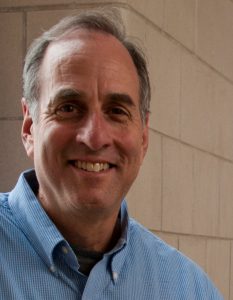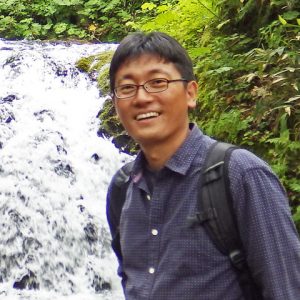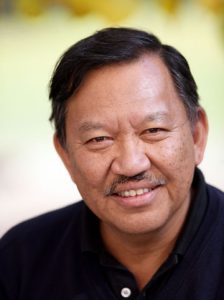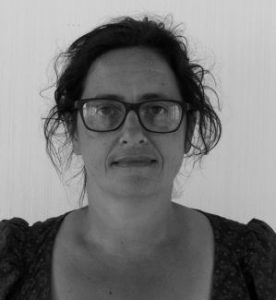New perspectives on evolution in molluscs: from fossils to next generation sequencing
21 March 2018
Flett Theatre, Natural History Museum, London
You are warmly invited to attend this celebratory symposium to accompany the 125th Annual General Meeting of the Malacological Society of London, hosted by the Natural History Museum, London.
The meeting will include talks from world-renowned experts in the field of malacology, covering aspects of molluscan evolution and life histories ranging from pharmacology, palaeontology and chemosymbiosis to larval development and shell structure. Focused on the phylum Mollusca, these talks will be of interest to evolutionary biologists, biogeographers, marine biologists and palaeontologists.
Registration:
The meeting is free to attend but registration is necessary. Please register by sending an email to the automated account MSL-events@nhm.ac.uk. You will receive a bounce back message to say that you have successfully registered. Please do not send queries to this account as it is not monitored. Each participant must register via a separate email.
Schedule:
10.00-10.30 Registration, tea and coffee
10.30-10.40 Welcome
10.40-11.25 Prof. Geerat Vermeij:
1 Shell Function and the History of Life: An Arena and Bedrock of Evolution
11.25-12.10 Prof. Sarah Samadi:
2 Feedback on the use of NGS in molecular systematics of molluscs in Paris
12.10-13.30 Lunch (provided by the Malacological Society of London)
3 125th AGM of the Malacological Society of London
13.30-14.15 Prof. Toto Olivera:
4 Venomous Fish-Hunting Conus: From Behaviour and Phylogeny to Drug
5 Development
14.15-15.00 Prof. Yasunori Kano:
5 Larval ecology matters: macroevolution and spatiotemporal distributions
5 of neritimorph gastropods
15.00-15.30 Tea & coffee
15.30-16.15 Prof. Dan Distel:
7 Kuphus polythalamia: uncovering the biology of a giant shipworm
16.15-17.00 Dr Carmel McDougall:
8 The molecular basis of molluscan biomineralisation
17.00-17.10 Closing remarks
17.10-18.45 Wine reception
Invited Speakers:
Prof. Dan Distel, Ocean Genome Legacy Center, Northeastern University, USA
Short biography: Dan Distel received his B.S. in Biology from Cook College, Rutgers University, NJ (1979) and his Ph.D. in Marine Biology from Scripps Institution of Oceanography, UCSD (1988). He served as a Postdoctoral Researcher at Woods Hole Oceanographic Institution, MA and at Scripps Institution of Oceanography, UCSD and as a research scientist at Harvard University, Cambridge MA. In 1994, he joined the faculty at the University of Maine, Orono. After receiving tenure, he left the University of Maine to become the founding director of Ocean Genome Legacy Foundation, Ipswich MA, which in 2014 merged with Northeastern University. He is currently a research professor and Director of the Ocean Genome Legacy Center at Northeastern University. His research interests include the biology, ecology, evolution and function of marine bacteria-animal symbioses, with emphasis on the wood-boring bivalve family Teredinidae (shipworms).
Prof. Yasunori Kano, Atmosphere & Ocean Research Institute, Tokyo University, Japan
Short biography: Yasunori Kano began his career as an avid beach comber and shell collector at the age of four, and 24 years later earned his PhD in Biological Sciences from the University of Tokyo. His thesis focused on comparative anatomy and taxonomy of living gastropods, although he was also interested in fossil molluscs and was strongly influenced by his mentor, palaeontologist Prof. Tomoki Kase. After two years as a postdoc in Tokyo, where he learned molecular phylogenetics and population genetics, he was appointed Associate Professor at the Atmosphere and Ocean Research Institute (AORI), University of Tokyo, in 2010. His current aim at AORI is to understand better the natural history of molluscs in the tropics and in the deep sea, by adding such disciplines as larval culture and elemental and isotopic analyses with the help of his students and postdocs. He currently serves as the Vice President of the Malacological Society of Japan and is an associate editor for its journal, Venus, and for the Journal of Molluscan Studies of the Malacological Society of London.
Dr Carmel McDougall, Griffith University, Australia
Short biography: Carmel McDougall is a molecular biologist with a broad interest in functional and evolutionary genomics, particularly of marine invertebrates. Her primary research has been in the field of molluscan biomineralisation, with a focus on identifying the genes involved in controlling shell synthesis, understanding how these genes have evolved, and investigating how variation in these genetic factors leads to differences in shell (or pearl) properties. Her research also uses comparative and functional genomics and experimental studies to provide practical outcomes for sustainable molluscan aquaculture. She is from Brisbane, Australia, and obtained her BSc (Hons) at the University of Queensland. She then undertook her PhD at the University of Oxford (spending her final year at the University of St Andrews) in the UK, investigating the evolution and development of polychaete worms. Her postdoctoral work brought her back to UQ, where she continued research into biomineralisation in abalone and pearl oysters. She is now an Advance Queensland Fellow at Griffith University, Brisbane, Australia, where she heads the Molecular Ecology Laboratory.
Prof. Toto Olivera, University of Utah, USA
Short biography: Baldomero (“Toto”) Olivera grew up in the Philippines; his early research contributions include the discovery and biochemical characterization of E. coli DNA ligase, an important enzyme of DNA replication and repair that has become a keystone of recombinant DNA technology. Toto Olivera initiated the characterization of predatory cone snail venoms. A large number of peptide neurotoxins (“conotoxins”) are present in each venom. Several peptides discovered in Olivera’s laboratory reached human clinical trials and one (Prialt) has been approved for the treatment of intractable pain. He has been elected a member of the American Philosophical Society, the U.S. National Academy of Science, and the U.S. National Academy of Medicine. He was given the Outstanding Alumni Award of Caltech, the Redi Award from the International Society for Toxinology and the Harvard Foundation Scientist of the Year 2007 Award. When he first arrived in Utah, he organized the Biochemistry/Molecular Biology Core curriculum for undergraduates. As Founding Director, he organized the University of Utah Interdepartmental Neuroscience Program. He is presently focused on establishing academic and research programs that link Neuroscience to the Biodiversity of the Marine Environment.
Prof. Sarah Samadi, Muséum National d’Histoire Naturelle, Paris
Short biography : The common background of Sarah Samadi’s scientific activities is the analysis of the conceptual grounds of systematics and evolutionary biology. Her present empirical projects, on invertebrates from poorly known environments of the deep-sea benthos (mainly molluscs), have been developed in the framework of ‘Integrative Taxonomy’. In this framework, her aim is to combine various methods in phylogenetics, population genetics and ecology, to provide insights into the origin of species diversity.
Prof. Geerat J. Vermeij, University of California, Davis, USA
Short biography: Geerat J. Vermeij is a Dutch-born professor of paleobiology at the University of California at Davis. Blind from the age of three, he graduated from Princeton University in 1968 and received his Ph.D. in biology from Yale University in 1971. An evolutionary biologist and paleontologist, he studies fossil and living molluscs. He started writing about his Escalation hypothesis in the 1970s. He received a MacArthur Fellowship in 1992. In 2000 he was awarded the Daniel Giraud Elliot Medal from the National Academy of Sciences, and in 2006 he received the Paleontological Society Medal. He was a member of the Board of Trustees at the California Academy of Sciences from 2006-2015. His books include Evolution and Escalation: An Ecological History of Life, A Natural History of Shells, Privileged Hands, Nature: An Economic History, and The Evolutionary World: How Adaptation Explains Everything from Seashells to Civilization. In addition, he has published more than 250 scientific papers on subjects ranging from taxonomy to functional morphology, patterns in the history of life, invasion, the causes of extinction, and the relation between economics and evolution.





